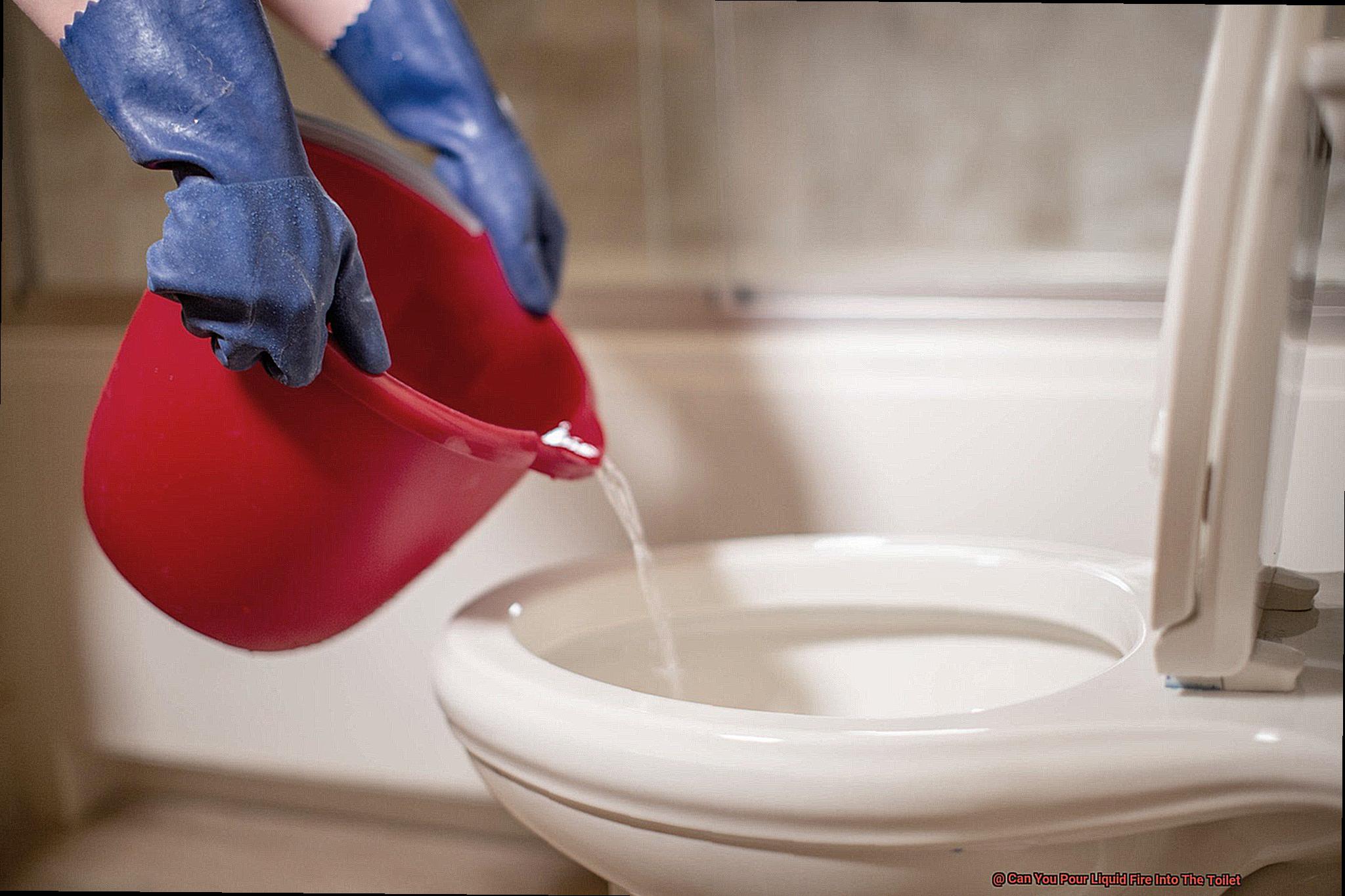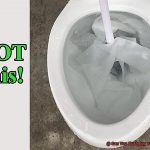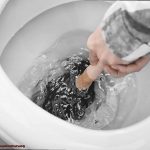Have you ever found yourself with a clogged toilet and thought, “I’ll just pour some Liquid Fire down there”? While it may seem like the easy solution, this powerful drain cleaner can cause more harm than good. Liquid Fire contains sulfuric acid, which is highly reactive and can cause severe burns on your skin, eyes, or respiratory system. So, before you reach for that bottle of Liquid Fire, let’s explore whether pouring it into the toilet is safe or not.
Liquid Fire is designed to dissolve grease, hair, paper, soap, and other organic materials that typically cause blockages in pipes. However, its potent formula can also corrode pipes and fixtures if not used correctly. Pouring it down your toilet may seem like a quick fix but could lead to costly repairs in the long run.
In this blog post, we will delve into the potential hazards associated with using Liquid Fire and why it should never be poured down your toilet. We will also discuss safe and effective alternatives for clearing clogs in your plumbing system.
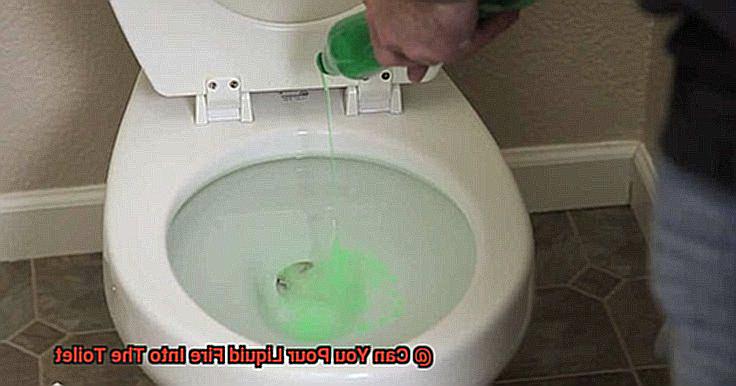
It’s crucial to understand the consequences of pouring chemicals down your drain before making any decisions about what to use when tackling plumbing issues. So sit tight as we explore everything you need to know about Liquid Fire and how to keep your plumbing system running smoothly without causing any damage.
Contents
Benefits of Using Liquid Fire
If you’ve ever been faced with the frustrating task of unclogging a toilet, you know how important it is to have a reliable solution on hand. That’s where Liquid Fire comes in – this powerful drain cleaner is designed to dissolve even the toughest clogs quickly and effectively, giving you the peace of mind you need.
One of the biggest benefits of using Liquid Fire is its fast-acting formula. Unlike other drain cleaners that can take hours or even days to work, Liquid Fire can dissolve even the most stubborn clogs in just a matter of minutes. This means that you don’t have to wait around for a solution – you can get back to using your toilet in no time.
But that’s not all – Liquid Fire is also incredibly versatile. While it’s primarily designed for use in drains, it can also be used on other surfaces such as sinks, showers, and even garbage disposals. This makes it a great all-purpose tool for tackling multiple clogs around your home.
Another major benefit of Liquid Fire is how easy it is to use. Simply pour the recommended amount into the affected drain or toilet and wait for it to work its magic. However, it’s important to follow the manufacturer’s instructions carefully and take appropriate safety precautions when handling this powerful substance.
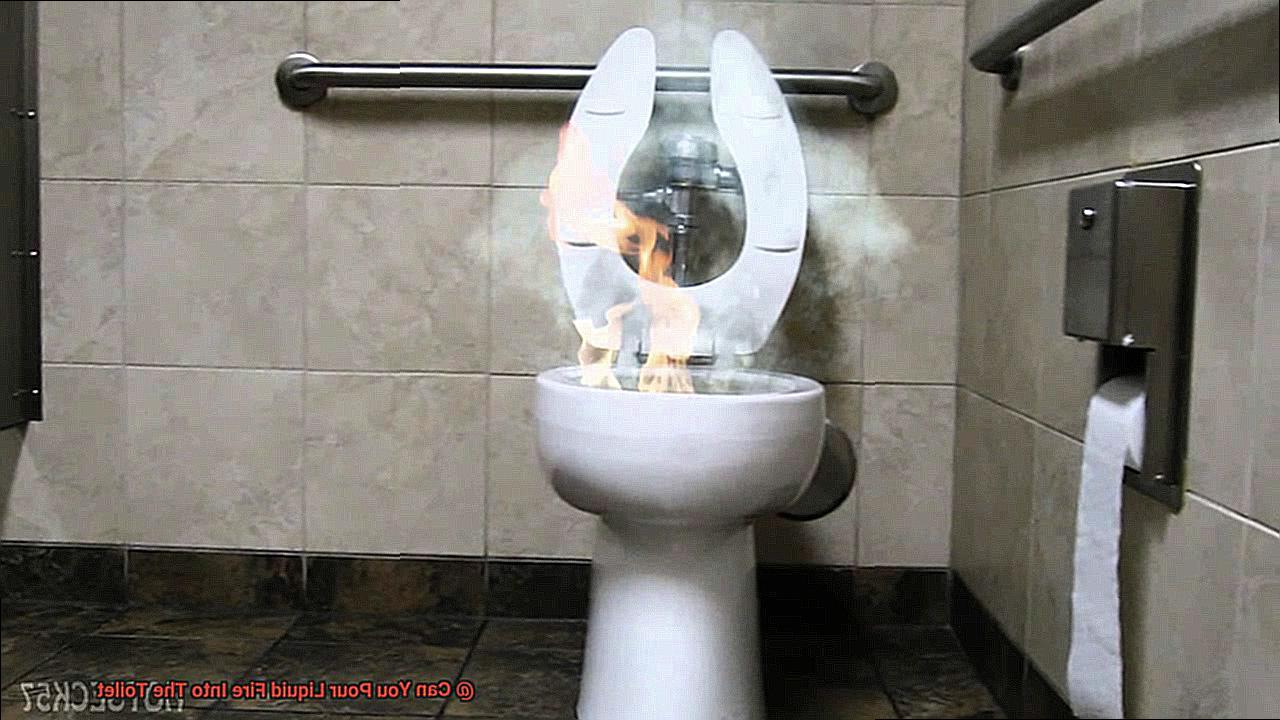
It’s worth noting that while Liquid Fire can be a lifesaver when dealing with stubborn clogs, it should only be used as a last resort. Overuse of this product can actually damage your plumbing system over time, so it’s best to avoid using harsh chemicals like Liquid Fire unless absolutely necessary.
Overall, if you’re looking for a reliable solution for unclogging your toilet or other drains, Liquid Fire may be just what you need. Its fast-acting formula, versatility, and ease of use make it a popular choice among DIY enthusiasts and homeowners alike.
Safety Precautions When Using Liquid Fire
Liquid Fire is a powerful drain cleaner that can dissolve even the toughest blockages in a matter of minutes. However, it’s important to remember that this product contains highly corrosive chemicals that can cause severe burns if they come into contact with your skin or eyes. Therefore, safety precautions should always be your top priority when handling Liquid Fire.
To start, always put on protective gear such as gloves and goggles before handling Liquid Fire. This will help prevent any accidental splashes or spills from coming into contact with your skin or eyes. Make sure to read and follow the instructions on the label carefully. Don’t deviate from the recommended usage or leave the product in the drain for longer than instructed.
It’s also crucial to keep Liquid Fire out of reach of children and pets. Store it in a secure location away from any food or drink items. In case anyone accidentally ingests this product, seek medical attention immediately.
Finally, when using Liquid Fire in a toilet, be mindful not to splash or spill any of the product onto surrounding surfaces such as the floor or walls. Clean up any spills immediately and dispose of any used product safely according to local regulations.
By following these safety precautions, you can effectively use Liquid Fire to unclog your toilet while minimizing the risk of harm to yourself and others. Say goodbye to frustrating clogs and hello to clear drains with Liquid Fire.
Potential Damage to Plumbing System Caused By Liquid Fire
Liquid Fire drain cleaner might seem like the perfect solution, but it can cause significant damage to your pipes if not used correctly. This powerful cleaning solution has a high concentration of sulfuric acid, which can eat away at your plumbing system and lead to costly repairs.
Pouring too much Liquid Fire into your toilet can be particularly hazardous. The acid can corrode and damage pipes, leading to leaks or even burst pipes. This can result in extensive damage to your plumbing system and require costly repairs. Additionally, the acid in the solution can also harm your toilet fixtures, causing cracks and chips in the porcelain bowl or tank, rendering your toilet unusable and requiring replacement.
But that’s not all – Liquid Fire can also react with other chemicals that may be present in your plumbing system. For example, if there is any bleach or ammonia in the pipes, it can create a dangerous chemical reaction that releases toxic fumes into your home.
To avoid these risks, it is essential to use Liquid Fire with caution and follow all instructions carefully. Wearing protective gear and keeping it out of reach of children and pets are crucial safety precautions. In case of spills, clean them immediately and thoroughly. If you are unsure about using this solution or have concerns about your plumbing system, it is always best to consult a professional plumber for advice.
Regular Maintenance vs Emergency Use of Liquid Fire
It can be frustrating and inconvenient, but before you reach for that trusty bottle of Liquid Fire, it’s important to understand the difference between regular maintenance and emergency use of this powerful drain cleaner.
Regular maintenance involves using Liquid Fire to prevent clogs and keep your pipes flowing smoothly. To achieve this, you simply pour a small amount of Liquid Fire down the drain every few weeks to break down any buildup and prevent blockages. However, it’s worth noting that regular maintenance with Liquid Fire may not always be necessary if you are cautious about what you flush down your toilet and drain.
On the other hand, emergency use of Liquid Fire involves using it to quickly dissolve a stubborn clog that is causing a backup in your toilet or drain. In this situation, it’s crucial to follow the directions on the Liquid Fire label carefully and use only the recommended amount of product. It’s equally important to wear protective gloves and eyewear, as Liquid Fire can be dangerous if it comes into contact with skin or eyes.
It is vital to note that prevention is better than cure when it comes to maintaining your pipes. Adopting good habits like avoiding flushing non-degradable materials and using a strainer in your sink can help prevent clogs from forming in the first place. By taking these preventative measures, you can reduce your reliance on emergency use of Liquid Fire.
Professional Help for Frequent Clogs or Other Plumbing Issues
While it may be tempting to try DIY solutions, it’s important to understand that not all problems can be solved with a plunger or a bottle of drain cleaner. In fact, some DIY solutions can actually cause more harm than good, leading to costly repairs and even health hazards.
That’s where a professional plumber comes in. When you hire a licensed plumber, you can save yourself time, money, and stress in the long run. Here’s why:
Firstly, a professional plumber can identify the root cause of your plumbing problems. Clogs may seem like a simple issue, but they can actually be caused by a variety of factors like tree roots, improper installation, or old pipes. A licensed plumber has the knowledge and expertise to diagnose the problem accurately and provide effective solutions.
Secondly, a professional plumber has access to specialized tools that are necessary for clearing tough clogs without causing damage to your pipes. They also have access to high-tech equipment like cameras that allow them to inspect your pipes and pinpoint the exact location of the issue.
Thirdly, a professional plumber can offer preventative maintenance services to help you avoid future plumbing issues. By scheduling regular maintenance checks, they can catch small problems before they become big ones and save you from costly repairs down the line.
Lastly, attempting DIY plumbing repairs can be dangerous. Plumbing systems are complex and working with them without proper knowledge and experience can lead to injury or further damage to your home. By hiring a professional plumber, you can have peace of mind knowing that your plumbing system is in good hands.
7RJXgXfyqB8″ >
Conclusion
To sum it up, the convenience of using Liquid Fire to unclog your toilet may seem tempting, but it can lead to disastrous consequences. With its highly reactive sulfuric acid composition, this drain cleaner can cause severe burns and corrode pipes if not used properly.
While Liquid Fire can be useful in maintaining your plumbing system, it should only be used as a last resort. Overuse of this product can damage your pipes and fixtures over time, resulting in costly repairs.
Instead of relying on harsh chemicals like Liquid Fire, adopting good habits such as avoiding flushing non-degradable materials and using a sink strainer can prevent clogs from forming in the first place.
If you’re experiencing frequent clogs or other plumbing issues, don’t hesitate to call a licensed plumber. A professional plumber has the expertise and tools necessary to diagnose and repair any plumbing problems while ensuring the safety of your home and family.

